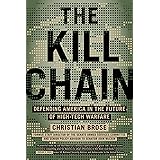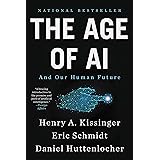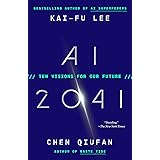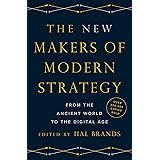
Enjoy fast, free delivery, exclusive deals, and award-winning movies & TV shows with Prime
Try Prime
and start saving today with fast, free delivery
Amazon Prime includes:
Fast, FREE Delivery is available to Prime members. To join, select "Try Amazon Prime and start saving today with Fast, FREE Delivery" below the Add to Cart button.
Amazon Prime members enjoy:- Cardmembers earn 5% Back at Amazon.com with a Prime Credit Card.
- Unlimited Free Two-Day Delivery
- Streaming of thousands of movies and TV shows with limited ads on Prime Video.
- A Kindle book to borrow for free each month - with no due dates
- Listen to over 2 million songs and hundreds of playlists
- Unlimited photo storage with anywhere access
Important: Your credit card will NOT be charged when you start your free trial or if you cancel during the trial period. If you're happy with Amazon Prime, do nothing. At the end of the free trial, your membership will automatically upgrade to a monthly membership.
Buy new:
-16% $27.41$27.41
Ships from: Amazon.com Sold by: Amazon.com
Save with Used - Very Good
$20.97$20.97

Download the free Kindle app and start reading Kindle books instantly on your smartphone, tablet, or computer - no Kindle device required.
Read instantly on your browser with Kindle for Web.
Using your mobile phone camera - scan the code below and download the Kindle app.

OK
 Audible sample Sample
Audible sample Sample 


Four Battlegrounds: Power in the Age of Artificial Intelligence
Purchase options and add-ons
An NPR 2023 "Books We Love" Pick
One of the Next Big Idea Club's Must-Read Books
An award-winning defense expert tells the story of today’s great power rivalry―the struggle to control artificial intelligence.
A new industrial revolution has begun. Like mechanization or electricity before it, artificial intelligence will touch every aspect of our lives―and cause profound disruptions in the balance of global power, especially among the AI superpowers: China, the United States, and Europe. Autonomous weapons expert Paul Scharre takes readers inside the fierce competition to develop and implement this game-changing technology and dominate the future.
Four Battlegrounds argues that four key elements define this struggle: data, computing power, talent, and institutions. Data is a vital resource like coal or oil, but it must be collected and refined. Advanced computer chips are the essence of computing power―control over chip supply chains grants leverage over rivals. Talent is about people: which country attracts the best researchers and most advanced technology companies? The fourth “battlefield” is maybe the most critical: the ultimate global leader in AI will have institutions that effectively incorporate AI into their economy, society, and especially their military.
Scharre’s account surges with futuristic technology. He explores the ways AI systems are already discovering new strategies via millions of war-game simulations, developing combat tactics better than any human, tracking billions of people using biometrics, and subtly controlling information with secret algorithms. He visits China’s “National Team” of leading AI companies to show the chilling synergy between China’s government, private sector, and surveillance state. He interviews Pentagon leadership and tours U.S. Defense Department offices in Silicon Valley, revealing deep tensions between the military and tech giants who control data, chips, and talent. Yet he concludes that those tensions, inherent to our democratic system, create resilience and resistance to autocracy in the face of overwhelmingly powerful technology.
Engaging and direct, Four Battlegrounds offers a vivid picture of how AI is transforming warfare, global security, and the future of human freedom―and what it will take for democracies to remain at the forefront of the world order.
30 illustrations- ISBN-100393866866
- ISBN-13978-0393866865
- PublisherW. W. Norton & Company
- Publication dateFebruary 28, 2023
- LanguageEnglish
- Dimensions6.5 x 1.7 x 9.6 inches
- Print length496 pages
Frequently bought together

Similar items that may deliver to you quickly
Editorial Reviews
Review
― Thomas E. Ricks, New York Times Book Review
"Scharre is a thoughtful, knowledgeable, and capable guide. He explains why AI matters and charts the areas that will determine which country gets the most out of its investments."
― Lawrence Freedman, Foreign Affairs
"An invaluable primer to arguably the most important driver of change for our future. Scharre marshals fact after fact to explain not just the technology, but the trends soon to unfold and remake our world."
― P. W. Singer, author of Burn-In
"Paul Scharre argues that the AI race between democratic and authoritarian states is well underway, and the stakes could not be higher: whoever wins will write the international rules of the next century. With revealing anecdotes, cogent analysis, and incisive insight, Scharre demystifies AI and its national security implications. If you read one book on AI this year, read this one!"
― Michele Flournoy, former Under Secretary of Defense for Policy
"How will AI change the balance of power between authoritarian states and democracies? This is one of the most important questions in geopolitics today. Authoritarians have already figured out how to use AI to their maximum advantage, and democrats must urgently do the same or risk losing the contest. First step: Read this book, a farsighted and comprehensive survey of the issues involved and the paths forward."
― Pedro Domingos, author of The Master Algorithm
"America and its military are facing a major test when it comes to AI. The country that best incorporates artificial intelligence technology into its defense will have significant military advantages over its competitors. Four Battlegrounds is an essential book for everyone involved in American leadership and American defense, because it outlines the challenges we face and explains the key components that will determine our success in using this important new technology to support American power and American ideals."
― Admiral James Stavridis, 16th Supreme Allied Commander of NATO
"In this riveting book on AI and power by one of the leading strategists of our time, Paul Scharre highlights an existential challenge: as Americans and Chinese militarize ever more powerful AI to avoid ceding control to each other, they risk ceding too much power to machines."
― Prof. Max Tegmark, MIT AI researcher and author of Life 3.0
"A must-read guide to how the emerging artificial intelligence arms race will shape the geopolitical, economic, and political struggle between China and its authoritarian allies and the democratic West led by the United States and Europe."
― Martin Ford, author of Rule of the Robots and Rise of the Robots
"A solid, well-organized account of the military applications of AI and of the race to take the lead global position."
― Kirkus Reviews
"Technophiles and technophobes alike will be challenged and enlightened."
― Publishers Weekly
"Readers knowledgeable about computer science will find it clarifying, while other will gain immense understand of an often opaque if important subject."
― James Pekoll, Booklist
About the Author
Product details
- Publisher : W. W. Norton & Company (February 28, 2023)
- Language : English
- Hardcover : 496 pages
- ISBN-10 : 0393866866
- ISBN-13 : 978-0393866865
- Item Weight : 1.91 pounds
- Dimensions : 6.5 x 1.7 x 9.6 inches
- Best Sellers Rank: #256,841 in Books (See Top 100 in Books)
- Customer Reviews:
About the author

Paul Scharre is the award-winning author of Four Battlegrounds and Army of None. He is the vice president and director of studies at the Center for a New American Security. Scharre is a former Pentagon policy analyst and a former Army Ranger who served in Iraq and Afghanistan. His first book, Army of None, won the 2019 Colby Award, was one of Bill Gates’ top five books of 2018, and was one of The Economist’s top five books to understand modern warfare. He has a PhD in war studies from King’s College London. Follow him on Twitter at @paul_scharre.
Customer reviews
Customer Reviews, including Product Star Ratings help customers to learn more about the product and decide whether it is the right product for them.
To calculate the overall star rating and percentage breakdown by star, we don’t use a simple average. Instead, our system considers things like how recent a review is and if the reviewer bought the item on Amazon. It also analyzed reviews to verify trustworthiness.
Learn more how customers reviews work on AmazonReviews with images
-
Top reviews
Top reviews from the United States
There was a problem filtering reviews right now. Please try again later.
That said, this is a phenomenal book. Bostrom's Superintelligence shaped the way I think about AI in philosophical terms, while Scharre's Four Battlegrounds laid out the current state of affairs in the race for AI. It profiles competition for data, computing power, talent, and institutions and provides sound policy recommendations to ensure competitiveness in AI. It is a phenomenal follow on to his previous book Army of None.
Reviewed in the United States on March 19, 2023
That said, this is a phenomenal book. Bostrom's Superintelligence shaped the way I think about AI in philosophical terms, while Scharre's Four Battlegrounds laid out the current state of affairs in the race for AI. It profiles competition for data, computing power, talent, and institutions and provides sound policy recommendations to ensure competitiveness in AI. It is a phenomenal follow on to his previous book Army of None.




Initially having researched the theory, moral responsibility, future tech and military application of AI (2018), Scharre widened his latest book’s content to cover how AI is already being used across a spectrum of economic, political, surveillance, security and military applications. The book jumps on the new cold war research bandwagon comparing and contrasting how China and America’s respective government models influence AI advances.
Scharre hasn’t changed his overall opinion of the risks in future AI weapons applications. He is really just bridging the gap between theory and application. There is still a scary future in AI autonomous weapons if not pursued prudently. In all the hype of future “what ifs”, where Scifi entertainment never quite matches with eventuality, Scharre brings his readers back to a contemporary reality in nascent AI application. Scharre’s thesis on how AI will continue development depends on four factors that governments and organizations must consider: data, computing, talent and institutions.
The US and China have been co-dependent, in a way, on AI research. Less than one third of AI talent in the US, according to Scharre, completed their undergrad in the US. In terms of the four battlegrounds, China has surpassed the US in most indicators. On the one hand, China’s AI-enabled surveillance tech is not hampered by human rights considerations, allowing China’s wide network of institutions to research, mobilize, test and weaponize data sets that would be considered invasive and illegal elsewhere. This applies directly to facial recognition data sets that global Chinese companies obtain from as far away as Africa and as close as Xinjiang. The acquisition of the data sets that some hail as a simple competitive advantage over other AI firms, is condemned by others, like Scharre, who emphasize the use of the data sets for repressive surveillance.
Scharre’s work is commendable for bringing the AI discussion down from apocalypse-sphere and to the everyday reality and practical application of current AI tech, highlighting still the vast limitations to AI and the practical importance of maintaining humans in the loop. For instance, while AI has made strides in object recognition, self-driving cars and strategy game dominance, the first is only achieved after human-assisted inputs of thousands of examples of a single object. China is achieving significant advances in self-driving cars but the achievements in that field are based on literally millions of hours of driving data based on specific rules-of-the-road parameters. Reportedly, while an AI model can now easily beat any human Go champion, all it would take to destroy the AI opponent would be to amend the board dimension. The millions of hours of data in current AI models, still mostly engineered to complete a single task, can be defeated via a simple false line of code or a last-minute adjustment to the rules.
And in war, rules are in constant flux. Author’s like Scharre warn that given the promise of AI, the biggest global threat is a race to the bottom; the temptation to put AI on the battlefield where the fog of war would immediately fluster the current level of AI advancement and lead to devastatingly mortal effects for all sides. Humans are able to perceive what is out of place, illogical or missing. New data or a “distributional shift” is lethal to both the AI tool and possibly everything in its vicinity, were it found on the battlefield.
All research works in advanced technology, like this one, risk being quickly contradicted due to the rapid and unexpected advances in the science lab and field. Scharre predicted that China’s authoritarian use of AI-surveillance would make mass social protests impossible. However, thousands of Chinese citizens still managed a protest against the CCP’s COVID-19 policies across a number of cities in November 2022, which likely had a significant contribution to Xi Jinping relaxing the zero-COVID policies. That doesn’t mean, however, that the surveillance state was not able to make a large number of arrests after the fact, using the aforementioned surveillance technology.
Perhaps the more dangerous advancement in AI is the weaponization of information. AI has both positive and negative inputs to social media use, messaging, journalism, new analysis and strategic communications. To make it worse, Scharre states that “Our brains are hard wired for disinformation.” When we think about the psychology of AI research and application, there are significant policy challenges. There is a fantastic similarity between assessing AI advances and assessing a rival’s capabilities. Competitors often err towards overestimating their rival’s potential. In many ways, AI is contributing, ironically, to an inability to think rationally, analyze information wisely and make prudent decisions.
A few critical remarks. Much of Scharre’s data seems to come from pre-COVID era research, possibly even data collected during the research of his earlier book on AI (2018), with only a few geopolitical references to 2021 and 2022 events despite the 2023 publication date. Both books are good reads; not contradictory works but instead complimentary.
Despite the impressive advances in programs like ChatGPT, facial recognition or self-driving cars, with the use of AI, humanity may become dumber before we become smarter. AI still lacks in the highest quality areas of political, social and cultural analysis. As Scharre has argued previously, AI is unable to fathom commander’s intent on the battlefield. A war using AI before AI is ready, would be a disaster. And while AI will replace many jobs across disciplines, it is already creating, as expected, more jobs in STEM but will make positions that require quality analysis and diplomatic human interaction in the social sciences even more crucial.
The section on US government procurement was interesting too. In a multilateral organizations these barriers to adoption are multiplied x 10.
For multilateral peacekeeping organizations (UN, AU, EU, NATO, etc) the main benefits I can see coming from artificial intelligence are in logistics, fleet maintenance and early warning intelligence. The multilateral organizations are not well funded (the whole of UN peacekeeping is funded less than the Sanitation Department of New York City). So they will be dependent on goodwill of the richer member states to supply AI products and expertise. These concepts are already in a embryonic form in things like FRIM (Field Remote Infrastructure Monitoring) run out of UNGSC which is implementing 'smart city' type technologies to create energy efficient 'smart camps' for peacekeepers.
Right wing 'Black Helicopter' fantasies in the US notwithstanding, the UN is NOT going to be using lethal drones or other forms of lethal targeting anytime soon. NATO is probably the exception here but that would be down to its member states to provide.
Hopefully the P5 and other technologically advanced countries will see it in their self interest to fund this to improve the effectiveness of multilateral peacekeeping and to reduce costs.
Reviewed in the United States on March 13, 2023

This book follows what is occurring by various nations, primarily the US and China. It does not say to go into code tricks or anything quite that elaborate. Through this book you will find Skynet isn't here yet but it is close.
Top reviews from other countries
Não consta as figuras das estatísticas.
Reviewed in Brazil on May 24, 2023
Não consta as figuras das estatísticas.

Reviewed in the United Kingdom on April 7, 2024

I should have given it 5 stars, but major mistakes in printing..loose bits of paper included which give graphs not printed in text!!




















